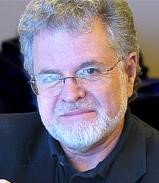 In a recent interview, Nick Denton, founder of a network of news-and-gossip websites called Gawker Media, talked with reporter Jeff Bercovici about social media and the value of gossip in finding facts. His goal is to turn his 80 million readers into willing accomplices and become a nation of gossip reporters. In his interview, he talked metaphorically about the Panopticon (the prison in which everybody is exposed to scrutiny all the time (http://en.wikipedia.org/wiki/Panopticon) and compares it to social media.
In a recent interview, Nick Denton, founder of a network of news-and-gossip websites called Gawker Media, talked with reporter Jeff Bercovici about social media and the value of gossip in finding facts. His goal is to turn his 80 million readers into willing accomplices and become a nation of gossip reporters. In his interview, he talked metaphorically about the Panopticon (the prison in which everybody is exposed to scrutiny all the time (http://en.wikipedia.org/wiki/Panopticon) and compares it to social media.
There is some real truth that gets told that is never of a scale to warrant mainstream media attention, and there’s no mechanism for fact-checking, no real truth. It’s out there. Half of its right. Half of it’s wrong. You don’t know which half is which. What if we could develop a system for collaboratively reaching truth? Sources and subjects and writers and editors and readers and casual armchair experts asking questions and answering them, with follow-ups and rebuttals. What if we could actually have a process that didn’t require paid journalists? You could actually uncover everything, every abusive executive, every corrupt corporation (Denton, 2014).
What if you did your own research and fact-finding?
His website is www.kinja.com. If you want to look for the latest gossip on nearly every topic, (except healthcare), it’s probably there. However, in healthcare, if you want to find the latest gossip on what’s happening, just turn on your television or pick up a magazine or newspaper. BUT if you want to be known as the “go-to” professional in the healthcare industry for the truth, then you will have to go beyond gossip given and look for facts, based on scholarly research and reputable journal sources. Go beyond the magazine stories, TV pundits and op-eds. Based on your own research, post your analysis and conclusions in the discussion sections (supported by reputable sources) and engage in debate, rebuttal, fact finding, and fact confirmation.
As a student, edge your way toward a more fact-based understanding of healthcare. BUT know that once you find the facts of today, tomorrow they may have changed. This is the essence of science: to be able to change our minds once we have better, well-established data and facts. But to get them we must look for them ourselves….every day.
You will find this process tedious and fraught with frustration and it will consume a great deal of your time. You may find that at the end of the class your investment makes you a more knowledgeable healthcare professional and that you have gained a process for finding the truth….every day.
“We do not receive wisdom; we must discover it for ourselves after a journey that no one can take for us or spare us.” Marcel Proust
Best wishes on your search and your discussions.
*********************************************************************************************
Dr. Pew serves as director of the Health Advocacy Leadership and Learning Organization. He has worked with public and private, not-for- profit and for- profit healthcare organizations and businesses in community health, continuous quality improvement, patient safety, Appreciative Inquiry, Strategic Planning and performance management and Quality Improvement He is a published author, public speaker and holds copyrights on Diversity Measurement Tools for large organizations. His most recent co-authored book is Don’t Go There Alone … A Guide to Hospitals for Patients and Their Advocates. Steve is the founder of Health Advocacy Leadership and Learning Organization (HALO), an organization dedicated to educating and training professionals and volunteers in health and patient advocacy in order to “bring out the best” in healthcare by teaching patients, families and advocates to be more informed consumers.
